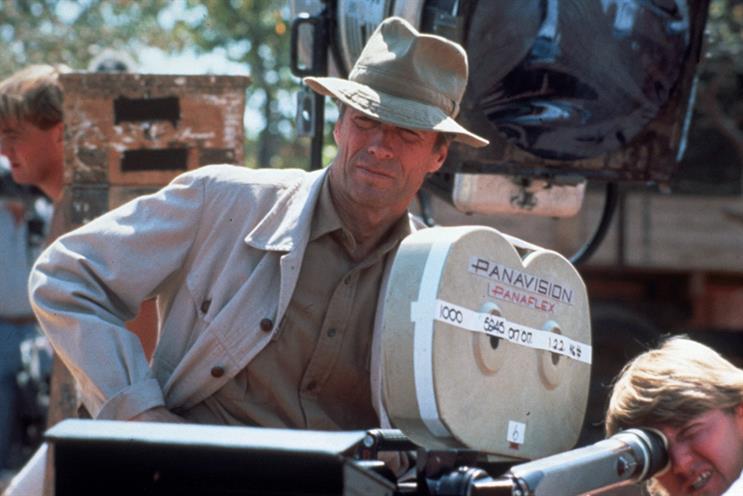It’s 1989. I have finished university and I’m putting off getting a proper job.
I find myself in Zimbabwe on the film set of White Hunter Black Heart. A movie directed by and starring Clint Eastwood about the making of the 50s movie The African Queen.
The African Queen is a little steamboat built in about 1912 and one of the scenes in this new movie requires it to be navigated through some rather dramatic Zambezi rapids.
That’s where I come in.
I have the job of riding the rapids in a dingy to work out the best route for the steamboat to take.
First, so that the camera crews know exactly where to position themselves.
And, second, to reduce the likelihood of the African Queen and Clint himself getting smashed to pieces during filming. I was clearly expendable; they were not.
Quite a long way from the proper job my parents hoped I would get after graduating.
Rapids get graded from one to ten depending on how treacherous they are, and the ones I am looking at have been graded nine.
Mr Eastwood (as I have been told to call him) comes up to me as I’m staring at the immense surging tide of water thundering past. An immense surging tide I’m about to be part of.
He speaks: "Big, huh?"
Mr Eastwood is, in real life, just like many of his characters – a man of few words. Preferring a "yup" or "nope" in answer to a question rather than a lengthy explanation.
I love that. I have always admired brevity. A reductionist thought that can strip away anything that is not necessary and in danger of obscuring the important thing. If a thought can’t be expressed simply, I think it unlikely to be a very good one. "Could I explain it to my mum?" is still a good test of whether a thought is simple and clear enough.
The Brazilian author Paulo Coelho believed there to be only two kinds of stories in the world: a voyage of discovery and a stranger comes to town. Clint’s roles have tended to be of the latter type. A Fistful Of Dollars, The Outlaw Josey Wales and Dirty Harry are all movies in which his arrival disrupts the status quo.
Great planners have the ability to look at things in new ways and bring a fresh perspective to a problem. To change something for the better. It has been proven that travelling to new places is one way to keep the mind creative. New sights, sounds, tastes and aromas stimulate the brain in new ways and help it make new connections. And form new ideas. So, just like Clint, great planners understand that their role is often to be the stranger that comes to town.
Clint has always surrounded himself with great talent (with the most notable exception of yours truly). Under his direction, five actors have won Academy Awards: Gene Hackman in Unforgiven, Tim Robbins and Sean Penn in Mystic River, and Morgan Freeman and Hilary Swank in Million Dollar Baby. So my next tip for planners is: collaborate with the best.
Innovative ideas require collaborations with new disciplines and new specialisms. Enjoy the chance to learn from others and build ideas that none of us could do by ourselves.
The days of ivory-tower planning have long gone. Planning now needs to go way beyond the writing of the brief and extend into communications architecture and communications planning. This might make the job more complicated than it once was, but it is also a whole lot more exciting. Relish getting your hands dirty. As, just like Clint, we need to be both actor and director in the content we help to make.
Clint is now 84 and still making movies. Over a career spanning more than six decades, he has acted in 64 movies, directed 30 and produced 24. I would say he has done more than his 10,000 hours that Malcolm Gladwell says we need to do to become expert at something. There is no substitute for practice and I would urge each young planner to seek out every learning opportunity. Volunteer to help on pitches, write IPA papers and make time to study the most-awarded work and work out what made it so great. Be expert in your field as, even in the new era of collaboration, we each need to bring our own expertise to that collaboration.
You know what you’re going to get with a Clint movie. Given the characters he has played, it’s no surprise he has become an icon of masculinity. Tough, terse and fearless. He loves to play the anti-hero. And no-one does it better. I’m not suggesting that all planners immediately don a Stetson, a cheroot and a poncho. Or start using the phrase "Go ahead, make my day" in client meetings. But I do think it’s important to find your own style. Learn from others. Steal all the good bits and then meld that into your own unique style.
And, finally, Clint made movies fast. I think most strategic breakthroughs happen when a team throw themselves at something with energy, commitment and pace. So move fast. Get somewhere quickly. A lengthy process kills everyone and everything.
And, in case you’re wondering how my journey down the rapids went – I survived. Just. I was hauled out of the raging torrent at the other end, having capsized three times and had my life flash before me twice.
They threw a towel around me as I stood there soaked, exhausted, bedraggled and trembling. Mr Eastwood grinned: "Tough, huh?"
I still don’t consider myself to have a proper job. Perhaps that’s why, after more than 20 years as a planner, I still love doing what I do.
Bridget Angear is joint chief strategy officer at Abbott Mead Vickers BBDO


